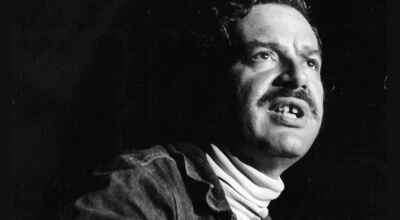For The Messianic Times editor Paul Liberman, Rosen is an inspiring figure. Back in 1986 Liberman was struggling with God’s direction for his career.
A call to Rosen prompted a personal visit from his mentor. After a long talk, Liberman asked Rosen to summarize in one sentence why he had come.
Noting his protégé’s struggles, Rosen replied, “My sentence is: I want you back in the game.” Energized, Liberman started the messianic church now led by his son before he later moved to Israel for nine years.
“To me it was a crossroads in life,” says Liberman, who until last summer was also director of the Jewish Messianic Alliance but today is back in California. “He’s always been a hero of mine. He provided a lot of energy and showed us we can evangelize Jews. He was a leader by example.”
Various adjectives apply to Rosen, whether “prescient,” “brilliant,” “outspoken” or “humble.” Others use terms such as “authoritarian,” “overbearing” and “controlling”—critics who see him as anything but kind. There were enough of the latter that in 2004 Rosen posted a letter on JFJ’s Web site apologizing to anyone he had offended.
“It’s true,” Rosen says of his aggressive nature. “Most people who are in charge of things—you will come up against them. Those are things about my personality, but it didn’t stop me from doing what I needed to do.”
Book editor Steve Lawson, who once worked under Rosen as JFJ’s director of publishing, never found the major accusations valid. He mentions the meeting where staffers discussed a negative article and Rosen remarked, “If we’re a cult, how come I can’t get you guys to do what I want you to do?”
“Everywhere I go I meet Jews who have been offended by Jews for Jesus,” Lawson says. “Nobody’s perfect. … Moishe Rosen is the first to admit it. There have been people hurt because of mistakes or something done wrong, but a larger number have been offended because of the gospel.”
When it comes to how her father will be remembered, Ruth Rosen says it will depend on the speaker’s perspective.
Currently writing his biography, the longtime JFJ editor says many will see him as the person who helped them discover God. Others will label him an eccentric and some a traitor responsible for so many Jews turning to Jesus, she says.
As for former cohorts who founded the bitterly critical organization called Ex-Jews for Jesus, Ruth Rosen hopes they understand her father’s legacy doesn’t focus on his greatness but God’s.
“Moishe Rosen never thought he was God’s gift to Jewish evangelism,” Ruth says. “It was always the other way around. He always felt that telling Jewish people about Jesus was a gift and a duty that God had entrusted to him. His legacy is to pass that gift and that duty to others.”
In a sense, he already has. Though still a board member and missionary, Rosen is so often publicly identified with Jews for Jesus that some forget he stepped down as executive director in 1996.
Yet the organization hasn’t suffered. Today it employs more than 100 missionaries in 11 nations. The ministry has 148 volunteer chapters and 200 volunteers who accompany staff on short-term evangelism projects, camps and internships. JFJ personnel distributed approximately 2.8 million tracts last year and spoke in 2,700 evangelical churches.
David Brickner, who held seven staff positions before replacing Rosen, says his preparation for leadership was the same as other candidates: a combination of mentoring, challenging, opportunity and hard work.
“He is a man who never stops teaching and is a man of insatiable curiosity,” Brickner says. “His questions and ponderings about life, ministry and the Scriptures were conversations we were invited into whenever we were with him.”
The director says the ministry’s 37 years of existence is a testament to the systems, values, and biblical and ethical principles Rosen put in place that have stood the test of time.
The leading principle that still drives the ministry is direct Jewish evangelism, something that includes constant rejection, hostility and lawsuits. The latter included one from comic Jackie Mason after his picture appeared on a tract in 2006 (JFJ withdrew it after an apology).
“We strive for excellence in all we do,” Brickner says. “If we say we’re going to do something and we fall short of doing that, then we want to be honest enough to say we fell short. We’re not going to call failure a victory.”
The victories range into the thousands. According to Solomon, more than 50,000 Jewish people worldwide follow Christ, a figure attributable to many ministries, yet still one that reflects JFJ’s impact.











































